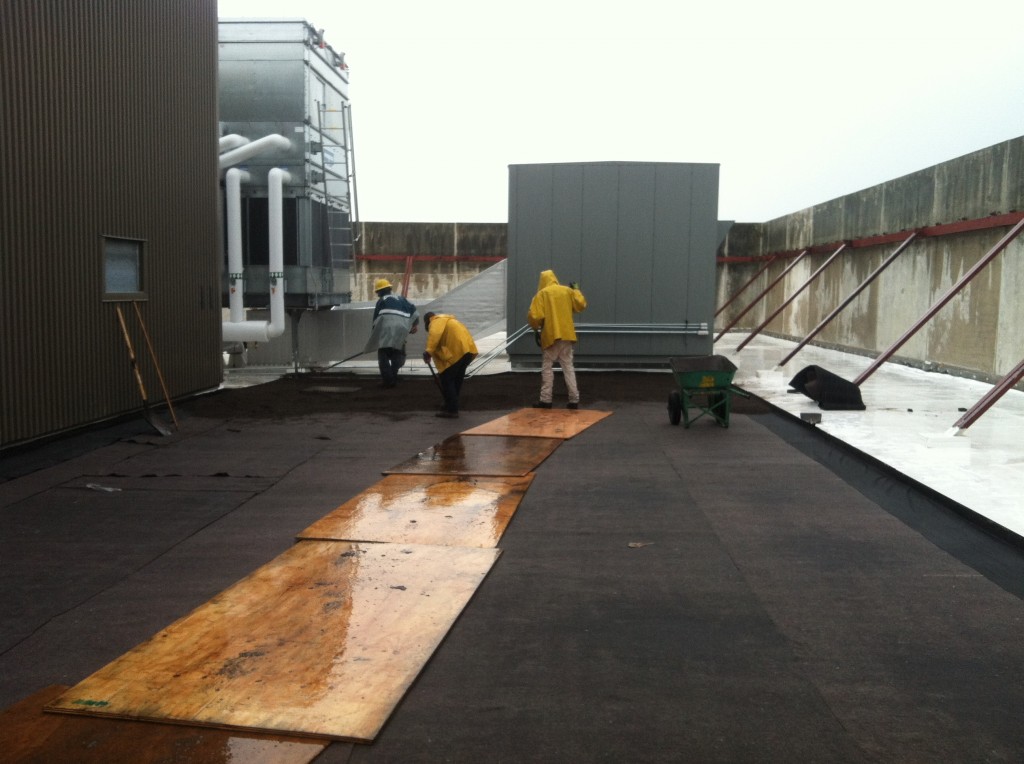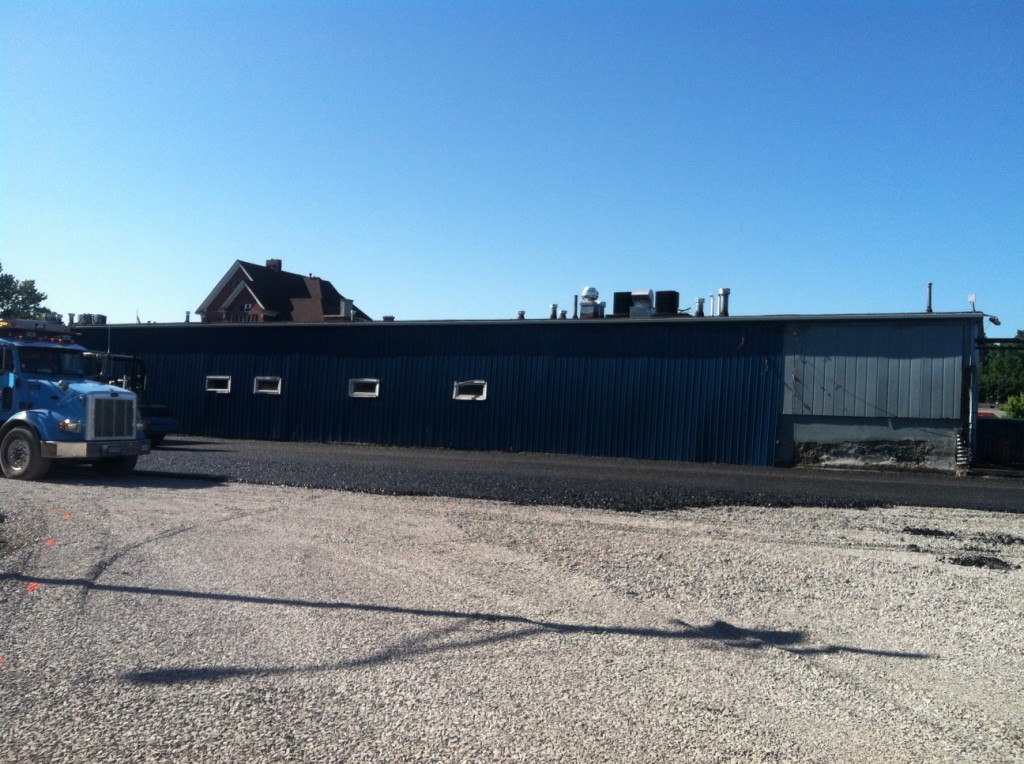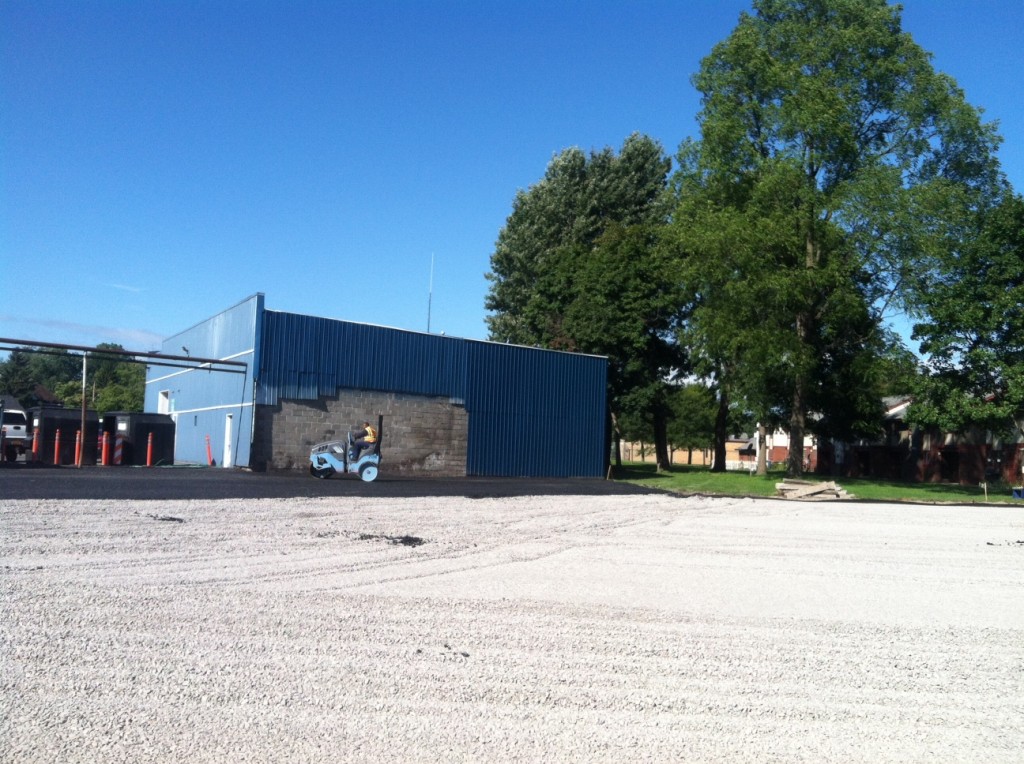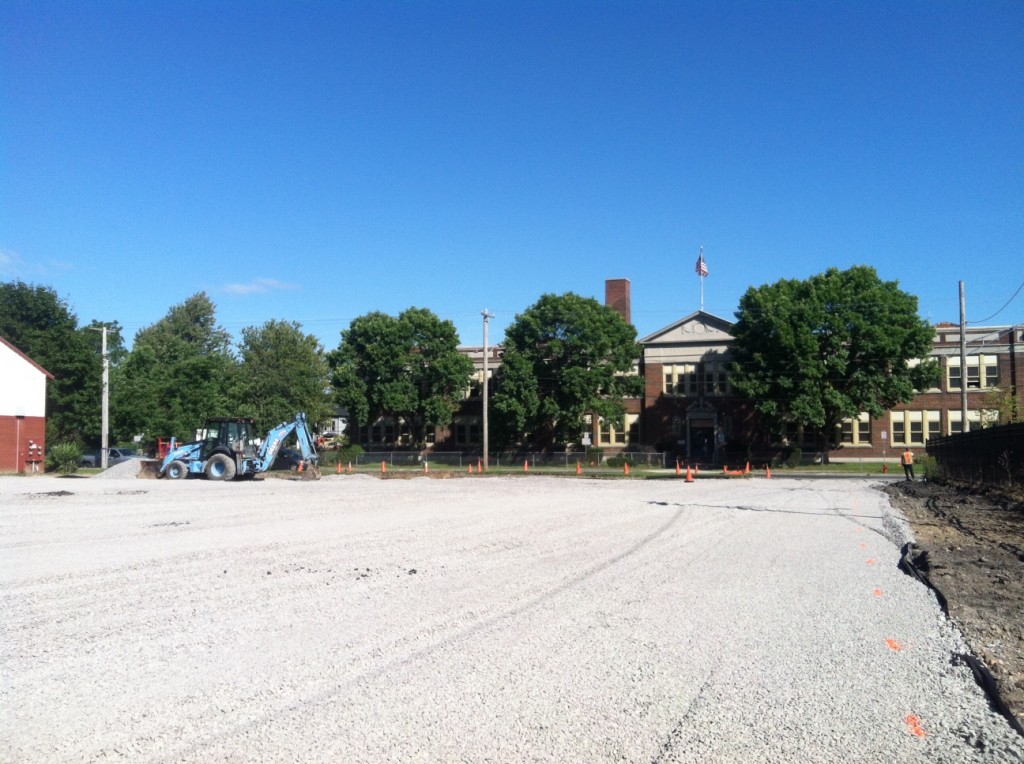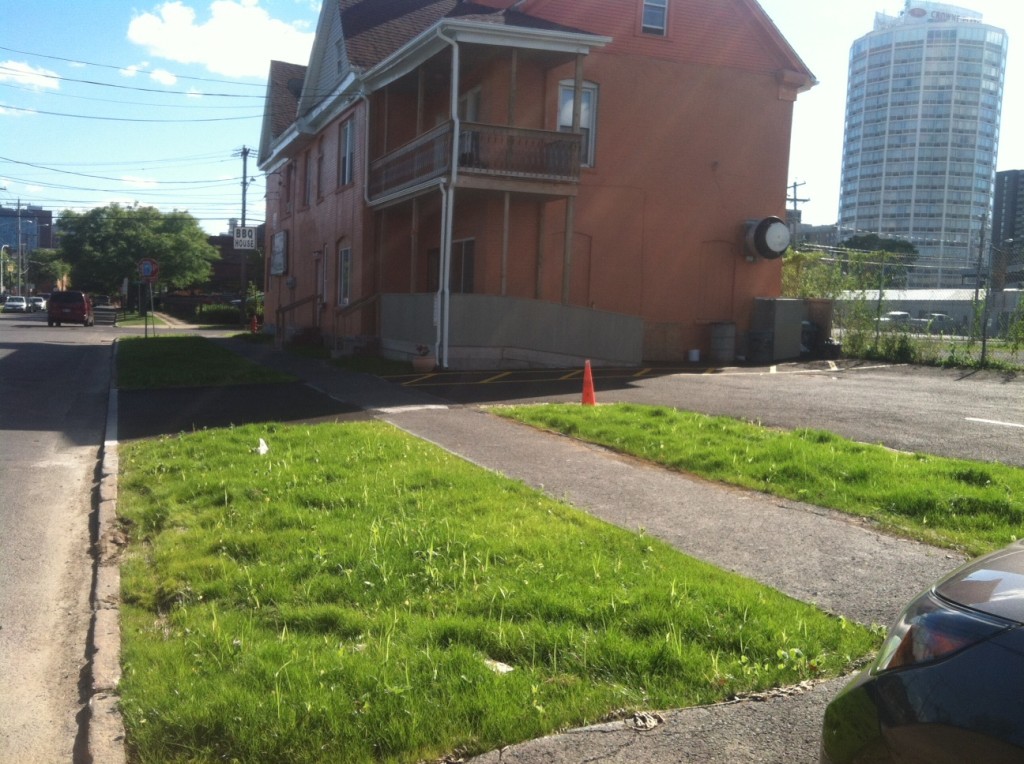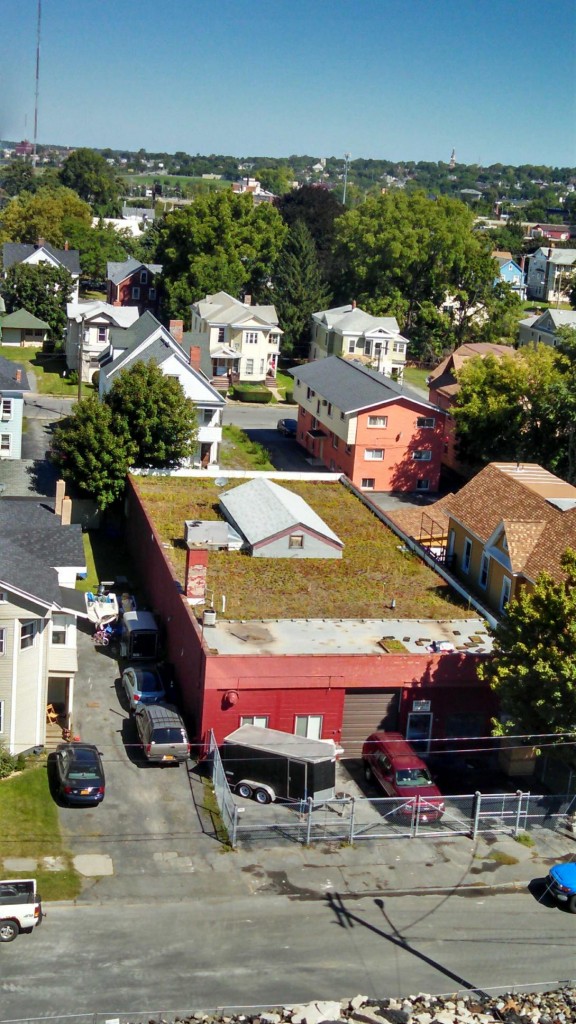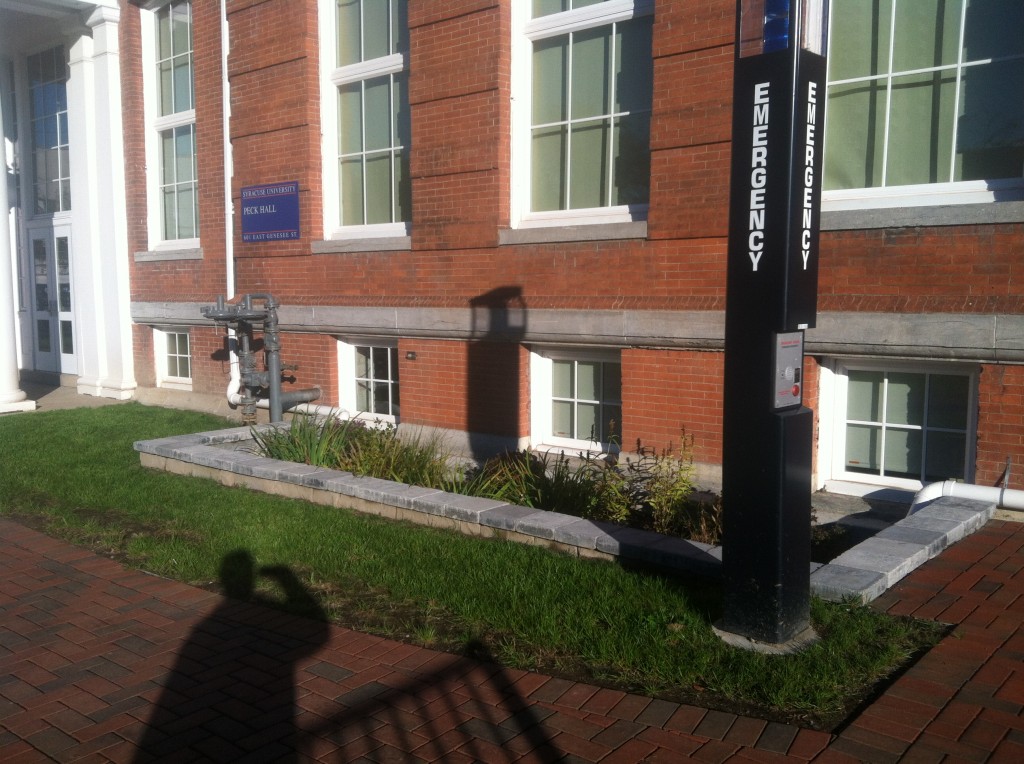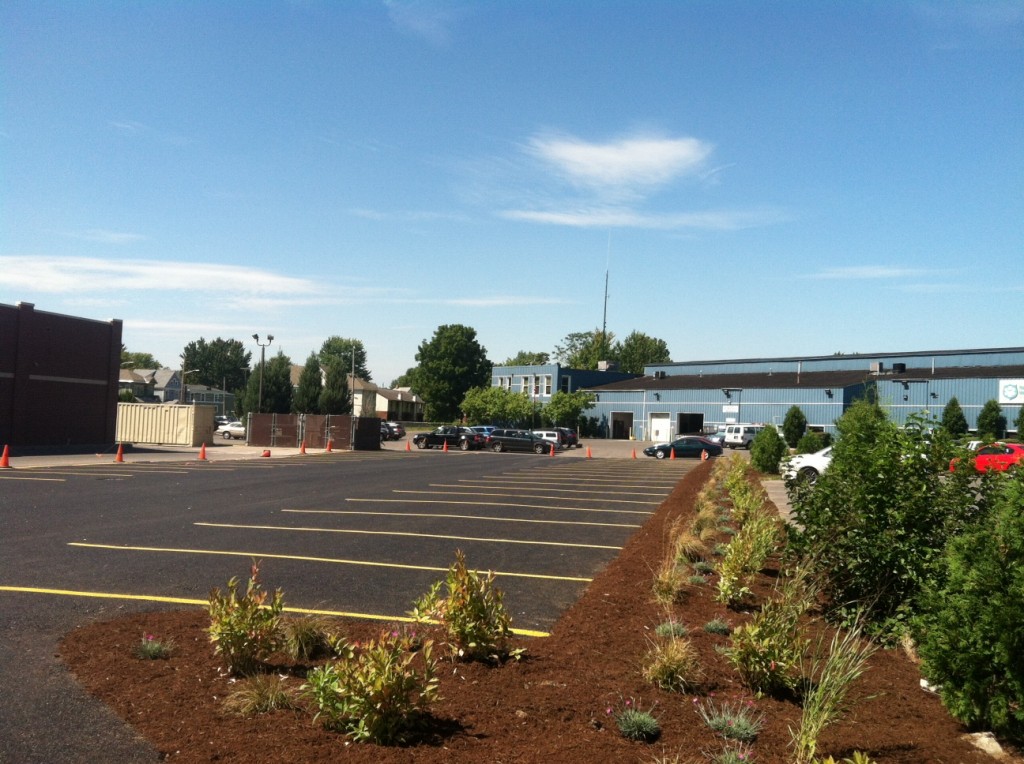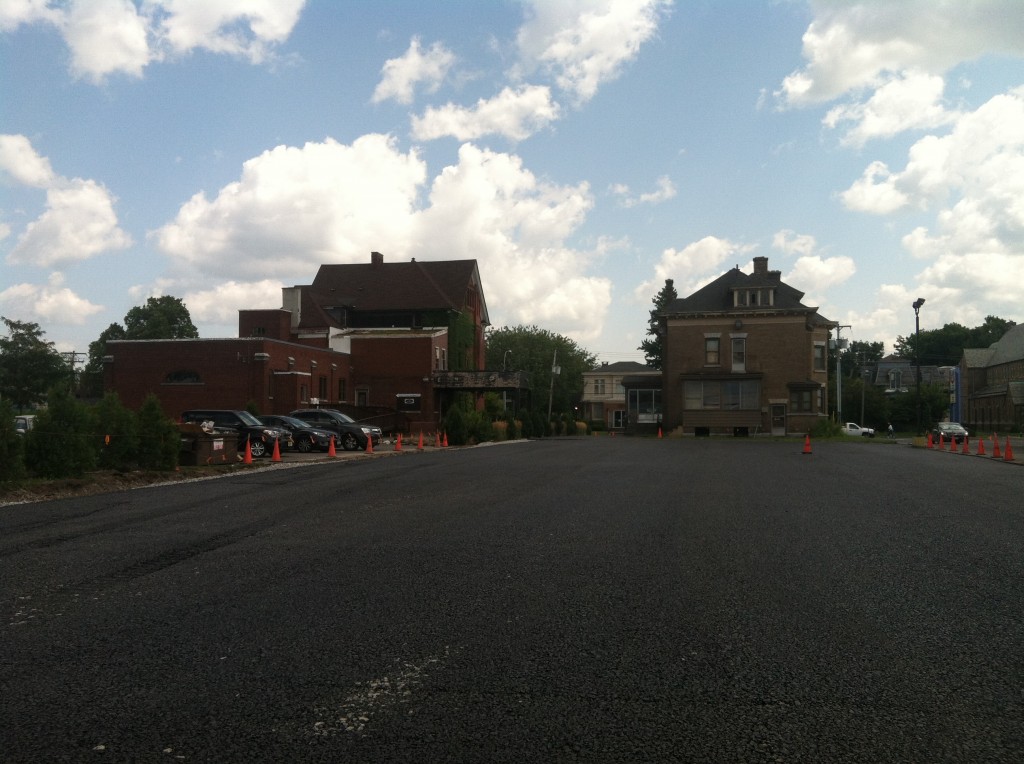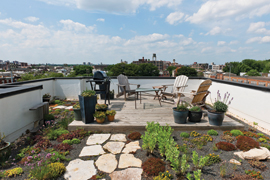Construction of the green (vegetated) roof at Onondaga Tower began on September 13, 2014. The building is the former HSBC Bank Building, a 15-story combined parking and office building currently owned by CBD Development Corp. The green roof is an approximately 5000 sq ft extensive vegetated roof funded by Onondaga County’s Save the Rain program. The green roof was designed by Natural Systems Engineering. Shaffer Building Services is performing the installation. The photograph below shows the placement of the growing medium, into which sedum will be planted.
Third Phase of Onondaga Commons Green Infrastructure Begun September 2014!
Construction began this month on the “Gar Building” green infrastructure project located at 414-416 W. Onondaga Street, Syracuse. This project involves converting a run down parking lot previously connected to the combined sewer to a porous asphalt installation with ornamental landscaping. Shown below is the stone infiltration basin and the base course of porous asphalt being installed are shown below.
Green Infrastructure Completed at JNJ Syracuse!
Construction was completed this month at the JNJ Syracuse restaurant site located at 725 E. Fayette St., Syracuse. The project consisted of porous asphalt to which runoff from the building was directed and added greenspace on site and in the “snow strip” adjoining Forman and E. Fayette Streets.
Green Roof at Graham Millworks Well-Established at 1 Year!
After 1 year, the extensive green roof at Graham Millworks located at Richmond Avenue in Syracuse is well established. The vegetated roof was planted in place in the Summer of 2013 using sedum plugs. This aerial view was obtained from a nearby building in September 2014. Green roof designed by Natural Systems Engineering, PLLC. Plants and soil supplied by Motherplants, Ithaca, New York.
Checking in on Erie-Bruce Green Infrastructure after 1 Year
The Erie-Bruce Green Infrastructure project located at 2112 Erie Boulevard East in Syracuse consisted of porous asphalt, porous pavers, and two bioretention areas. The site is characterized by sloping topography toward the office building, and clayey soils exhibiting low infiltration. The green infrastructure installed not only achieved the Onondaga County Save the Rain program objectives for retention of stormwater on-site, but did so in a manner that actually alleviated the flooding that sometimes occurred in the building related to storm runoff. Construction was completed in the Fall of 2013. Photos are from late Summer 2014.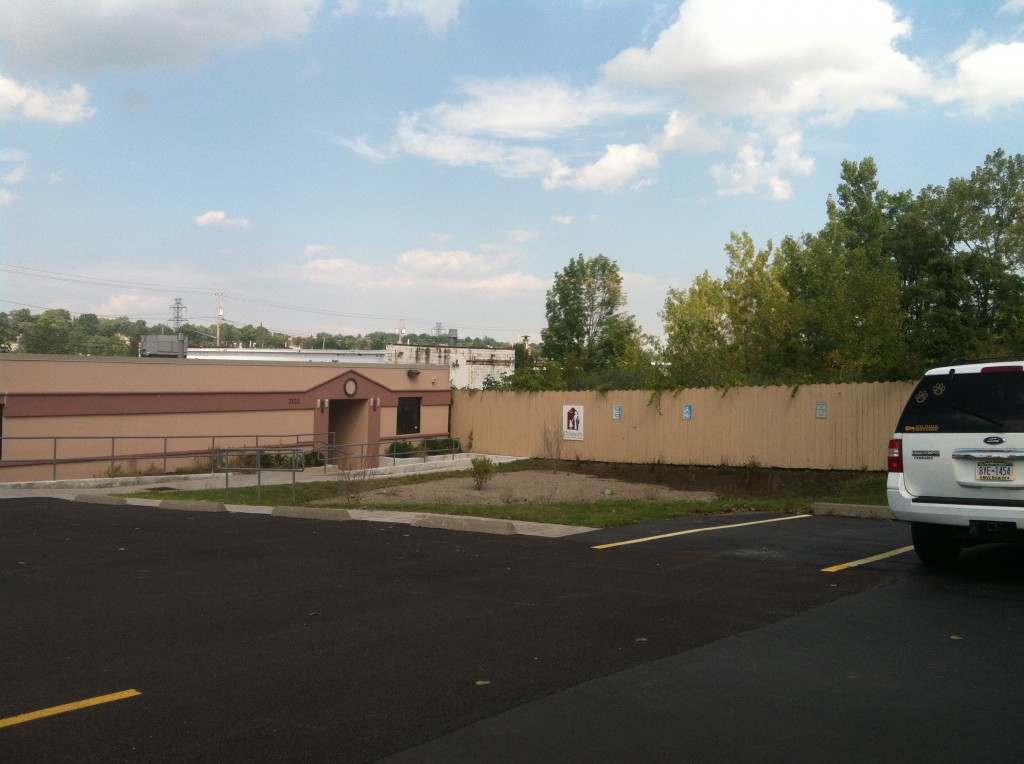
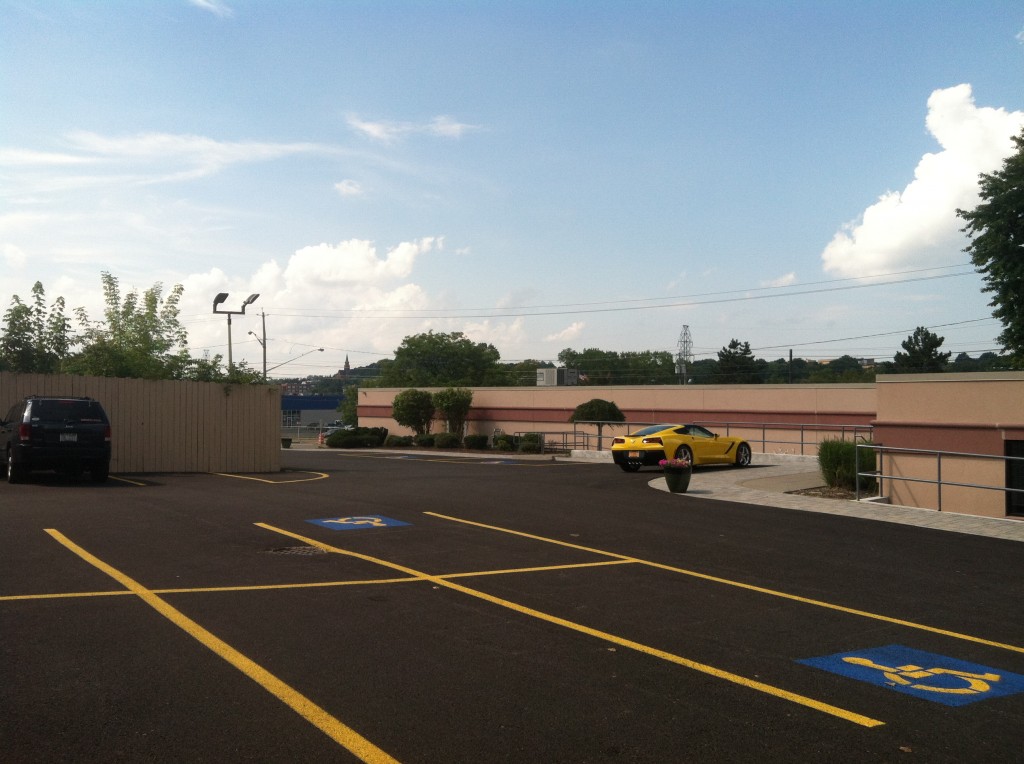
Porous asphalt (foreground) and porous pavers (background) at Erie Bruce Green Infrastructure project
Natural Systems Engineering Featured in Short Enterprises’ “Startup Insider”!
The August 29th edition of Short Enterprises‘ “Startup Insider” features Natural Systems Engineering. The article discusses NSE’s contribution to the cleanup of Onondaga Lake through our green infrastructure projects and also presents our work in renewable energy. NSE’s designs of green roof, bioretention areas, porous pavements, stormwater infiltration planters (see photograph), green roofs, and rainwater harvesting systems are featured. NSE’s design of a geothermal heating and cooling system for an urban dwelling is also highlighted.
Onondaga Commons Former AAA Building Green Infrastructure Project Completed!
In August 2014 construction was completed on NSE’s latest green infrastructure project, located at 506 W. Onondaga Street, Syracuse. The project consists of added greenspace and 15,300 sq ft of porous asphalt. The project manages runoff from 17,220 sq ft of impervious surfaces effectively managing over 380,000 gal of stormwater annually.
Porous Pavement Construction Underway for Latest Phase of Onondaga Commons – Former AAA Building
Construction began this week on Onondaga Commons’ latest Save the Rain green infrastructure project, GIF #09. The project consists of the replacement of 17,200 sq ft of formerly impervious surfaces with 15,300 sq ft of porous asphalt and 1900 sq ft of added greenspace. The project will manage over 380,000 gal of stormwater annually. Photograph is of the porous asphalt base following construction.
Green Infrastructure Makes Business Sense
The May 2014 Issue of Stormwater Magazine contains an excellent article on page 44 entitled “Exploring New Partners to Green Our Urban Landscapes.” The article describes how incorporating green infrastructure (GI) into site development can yield a return on investment. Some of the examples cited in the article include:
- The visual amenity afforded by a green roof incorporated into an apartment complex in Boylston MA resulted in an increase in rent of between $300 and $500 a month for those units that overlooked the green roof.
- the DECREASE in the amount of frost heave in porous pavements in Chicago, IL when compared with conventional paved surfaces has resulted in a longer lifespan for the installations making porous pavement the lower cost alternative.
- green roofs double the lifespan of conventional roofs thus incurring savings in roof replacement dollars over a 40 year lifespan.
These examples don’t even consider the possible benefits available through various subsidies for such technology nor consider the relative offset in costs where regulations or ordinances would require stormwater management, whether through GI or conventional measures anyway. More detailed information is contained NRDC’s 2013 report “The Green Edge: How Commercial Property Investment in Green Infrastructure Creates Value” discussed in our January 31, 2014 blog post.
Buffalo, New York Green Infrastructure
The U.S. Environmental Protection Agency announced today that it will provide technical assistance to the Buffalo Sewer Authority to expand the use of green infrastructure to reduce water pollution and improve Buffalo’s resilience to the impacts of climate change. The EPA will assist Buffalo in assessing paved and unsightly vacant lots, which contribute to stormwater runoff and pollution of local waters. The newly announced assistance augments a $500,000 grant provided to Buffalo in March 2014 to help fund green infrastructure projects in the city. The projects are expected to prevent nearly 5 million gallons of stormwater runoff per year from flowing into Lake Erie.
“The EPA is very excited to assist the Buffalo region in assessing how vacant lots across Buffalo contribute to stormwater pollution,” said EPA Regional Administrator Judith A. Enck. “The expansion of green infrastructure on vacant lots will promote sustainability and expand projects to improve water quality and withstand the increasing impacts of flooding related to climate change.”
Source: U.S. Environmental Protection Agency 05-01-14

